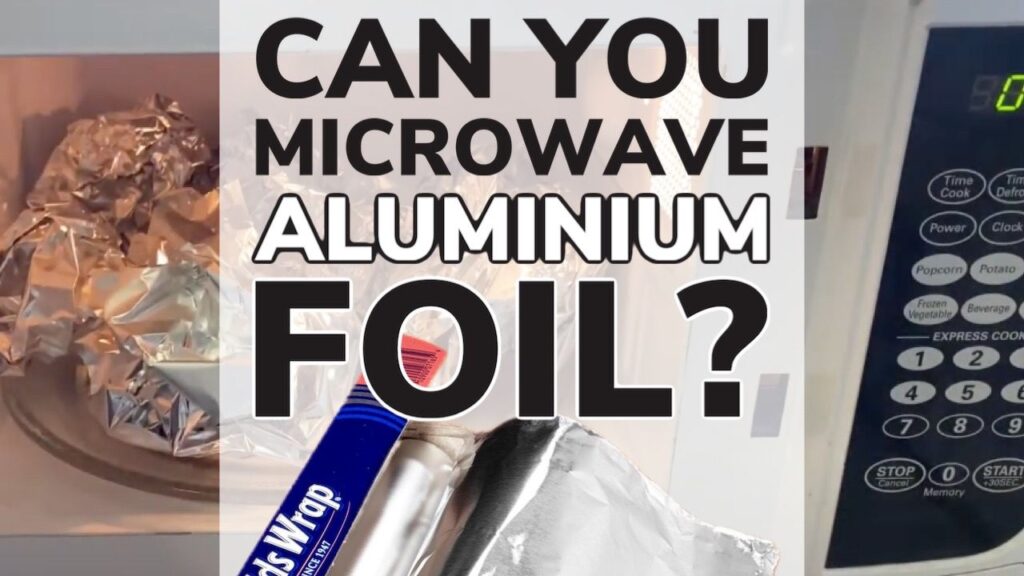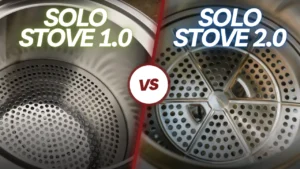There is a lot of misinformation out there about whether or not you can put aluminium foil in the microwave. Some people say absolutely not, that it will both catch fire and break your microwave, while other reputable sources like the USDA say that it's actually fine.
So what's the go? Can you microwave aluminium foil and what happens if you do?
Rather than just believe the conventional wisdom I decided to run my own experiments with aluminium foil as well as look into what the experts and research studies said. What I found was very interesting:
It is actually ok to microwave aluminium foil and some dishes (like hot pockets or microwaved pizzas) use thin aluminium foil to cook the food. The aluminium foil reflects microwaves so don't completely cover your food. It gets hot quickly and can cause sparks so watch it closely, but it won't break your microwave or blow it up.
Aluminium foil actually has many uses in the microwave, from shielding food and stopping overheating and drying out to cooking food and making it crispy (rather than soggy).
Aluminium trays can also be a healthier alternative to plastic or cardboard containers as they don't leach harmful chemicals into your food.
There's also the fact that aluminium is infinitely recyclable so can be better for the environment that plastic containers.
What Happens If You Put Aluminium Foil In The Microwave?
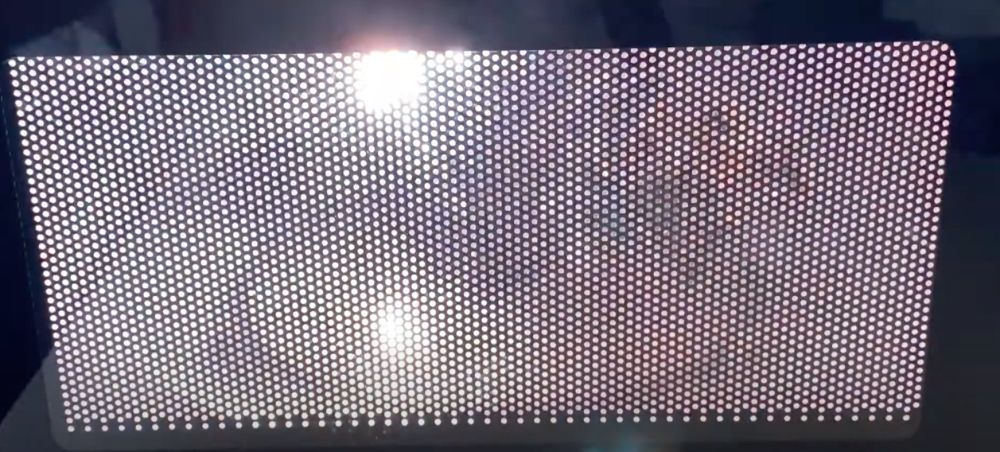
So what does happen when you put aluminium foil in the microwave?
Does it blow up your microwave? Does it spark? Does it do little to nothing?
I wanted to see for myself so I did a bunch of experiments with aluminium foil in the microwave. You can see my experiments in the video below:
In my experiment I specifically only microwaved aluminium foil by itself. This was the most extreme test cases as when you microwave aluminium foil with food or drink then the food or drink will absorb a lot of the microwaves energy.
In my experiment I noted that:
Flat pieces of aluminium sparked a little but, but very infrequently and they didn't cause damage to my microwave.
Scrunched up aluminium sparked a lot more and got hot enough to burn holes in the aluminium foil. But again no damage to the microwave was done.
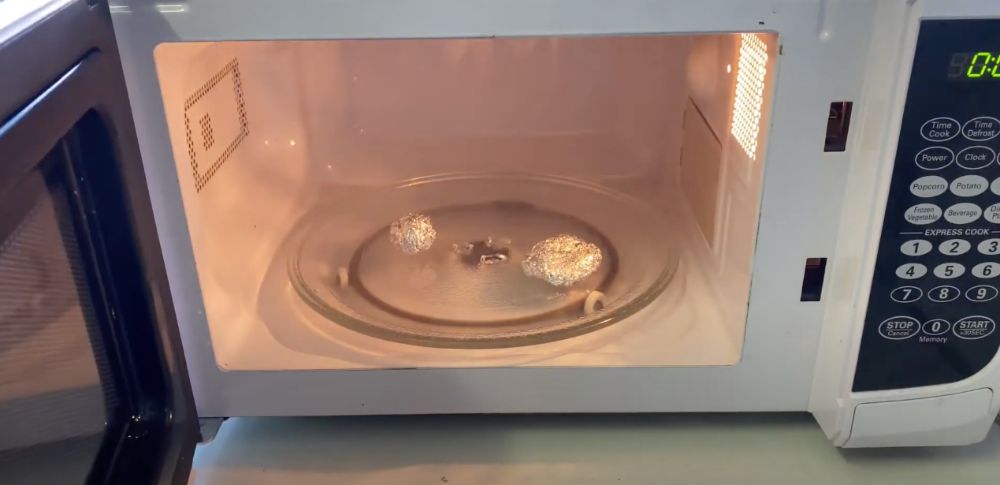
Compacted, smooth pieces of aluminium foil warmed up but did not cause any sparks at all.
Two pieces of scrunched up foil caused quite a lot of sparks and seemed to produce plasma (super heated gas). But again this didn't break my microwave.

Filling up the microwave with scrunched up aluminium foil led to a lot of sparks, especially where the foil was touching the walls of the microwave. Permanent scorch marks were caused on the walls of my microwave but the microwave still works perfectly fine.
Will Aluminium Foil Damage Your Microwave?
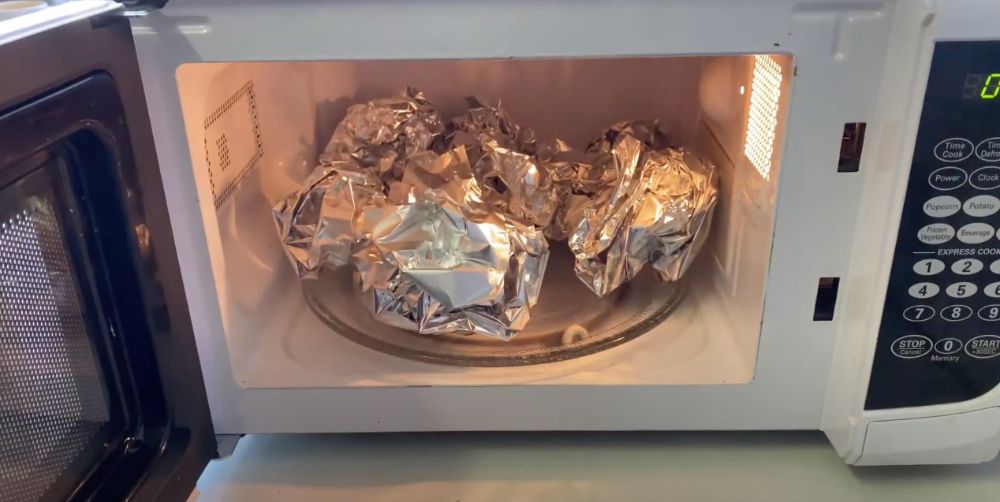

There are a lot of articles out there stating that aluminium foil will damage your microwave and that the reflect microwaves can cause your microwave to break or even blow up.
I didn't see this in my experiments so I wanted to do the research and see what experts had to say on this matter.
Putting aluminium foil in your microwave will not break or damage it or cause it to blow up. Arcs (sparks) may cause cosmetic damage to the inside of your microwave but the idea that reflected microwave energy will break the microwave's magnetron is completely untrue for modern microwaves.
In this study they disprove this common myth. They state:
“No negative of destructive influence on magnetron operation was detected after a test time equivalent to 32 years average household service life”
They also state in this same study that:
“safety of microwave over operation is not affected by heating food in aluminium foil trays, if instructions are followed. If arcing occurs, it will not damage over or start a fire but may cause minor aesthetic defects in the over wall”
This quora post also contains information from microwave scientist Robert F. Schiffmann. He states:
today's ceramic-dome magnetrons can withstand a great deal of reflected power (VSWR) and can be run into an empty oven for quite a while. The tube has to “eat” the reflected power and that heats the magnetron – when it gets too hot it shuts down without damage due to a thermal switch on it. Early magnetrons had glass domes and couldn't withstand much reflected power and that's the source of the myth of never putting metal in a microwave oven.
How To Safely Use Aluminium Foil In The Microwave
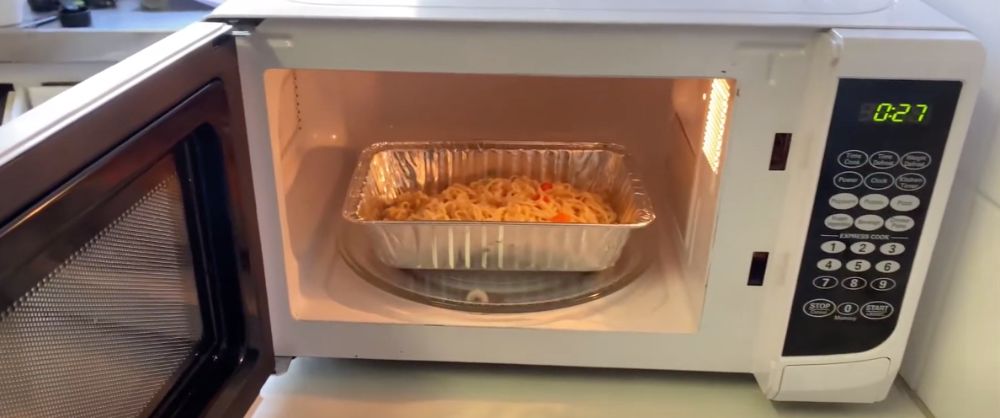
You can safely use aluminium foil in the microwave if you follow a few simple safety precautions:
- Aluminium foil should be placed towards the center of the microwave and should not touch the microwave walls
- Don't completely cover your food with aluminium foil, no microwaves will be able to get through
- Make aluminium foil as smooth as possible. Avoid pointed bits of aluminium as these can build up electrical charge and cause sparks
- If arcing (electric sparks) occur turn off your microwave immediately.
- Be careful using paper or cardboard with aluminium as the heated aluminium could potentially set the paper/cardboard on fire.
- If your microwave turntable is made of metal then place a glass or ceramic plate under your aluminium.
- Ideally, don't put aluminium in the microwave by itself. Food and drink will absorb microwave energy making the aluminium foil less likely to spark.
Follow these steps and you should be fine to safely use aluminium foil in your microwave.
Are There Health or Cancer Risks With Using Aluminium Foil In The Microwave?
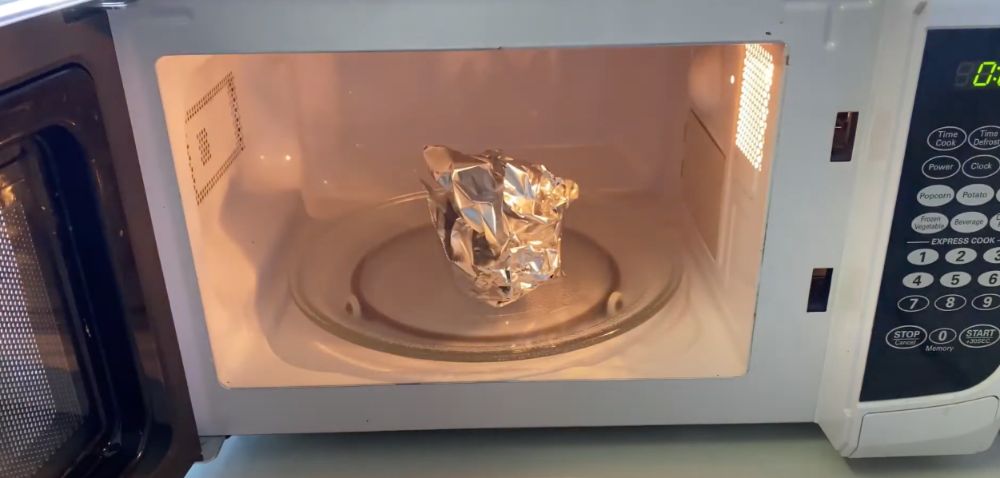
Finally I wanted to look into whether there were any potential health issues when microwaving aluminium.
I was pretty shocked when I found out that microwaving styrofoam can leach chemicals into our food and so can microwaving paper and microwaving paper towels.
From the research it seems microwaving food with aluminium foil poses little health risk. It's unlikely to increase your chances of getting cancer or other negative health effects unless you are exposed to large quantities.
The European Food Safety Authority (EFSA) and the World Health Organization (WHO) put a tolerable weekly intake at between 1-2 mg of aluminium per kg of body weight.
There have been some news reports that aluminium is linked to Alzheimer's disease as well as some types of cancer, but multiple studies have been unable to find a solid link.
This article says:
The Alzheimer’s Society does not recognize normal daily intake of aluminum through food or cookware as a cause for the disease. Additionally, aluminum from cooking utensils has not been linked to cancer.
This study looks at a variety of studies into the negative health outcomes of aluminium and states:
No acute effects due to dietary exposure to aluminium have been observed in the general population
It also seems that links to aluminium and Alzheimer's as well as breast cancer are inconclusive with some studies showing a potential link while other studies showing no link at all.

